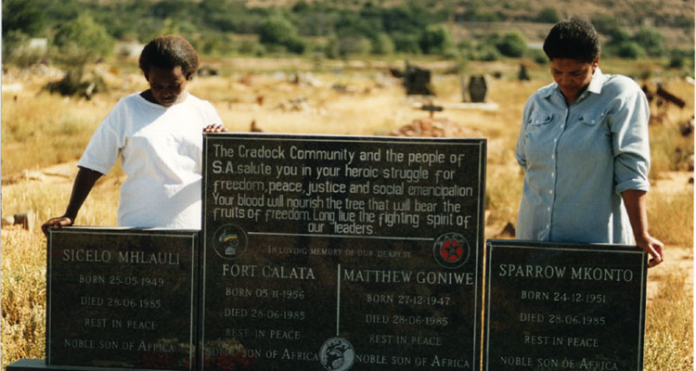Justice and Correctional Services Minister, Ronald Lamola, has approved the re-opening of the Cradock Four inquest – based on the National Prosecuting Authority’s recommendation.
The bodies of anti-apartheid activists Matthew Goniwe, Sparrow Mkonto, Fort Calata, and Sicelo Mhlauli were found in June 1985. Days after they left Gqeberha (then Port Elizabeth) for Cradock on 27 June, and were never seen again.
The circumstances surrounding their death have been linked to the “Security Branch”, of the apartheid government’s police force.
“They were then abducted and murdered. Days later, their badly burnt bodies, with numerous stab wounds, were discovered in two different places. All four anti-apartheid activists had attracted the attention of the Security Branch and the government of the day on numerous occasions.” – Chrispin Phiri, Ministry of Justice and Correctional Services spokesperson.
This will be the third time their death will be investigated, following inquests in 1987 and 1993. However, the decision to reinvestigate is said to iron out the inconsistences of these prior inquests. One of the main issues being that the identity and motive of the murders have, to this day, remain unknown.
“Both the De Beer inquest in 1987 and the Zietsman inquest in 1993 produced more questions than answers. Neither of the inquests identified the murderers of the deceased.”
In the upcoming inquest, new evidence – including amnesty applications from security police officers – will now be considered.
The Ministry of Justice and Correctional Services provide more detail on the matter, and more information on the Cradock Four, on their website.
Justice for struggle activist Imam Haron’s family
Lamola’s move to reinvestigate the Cradock Four’s death, comes after he reopened the inquest into the death of another anti-apartheid activist, Imam Abdullah Haron. The Haron family were vindicated last year, after the Western Cape High Court overturned the finding of the 1970 inquest into Imam Haron’s death. The then-inquest cited that he died as a result of falling down stairs. But last year’s inquest confirmed that the struggle activist had been tortured by apartheid police, resulting in his death.
READ MORE: Imam Haron re-opened death inquest heard


